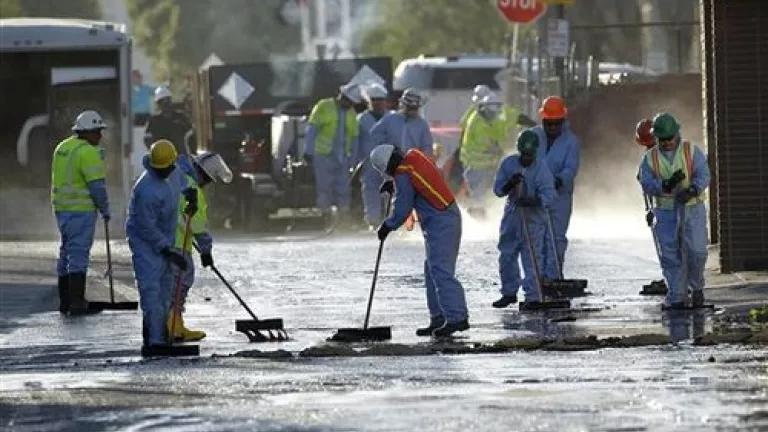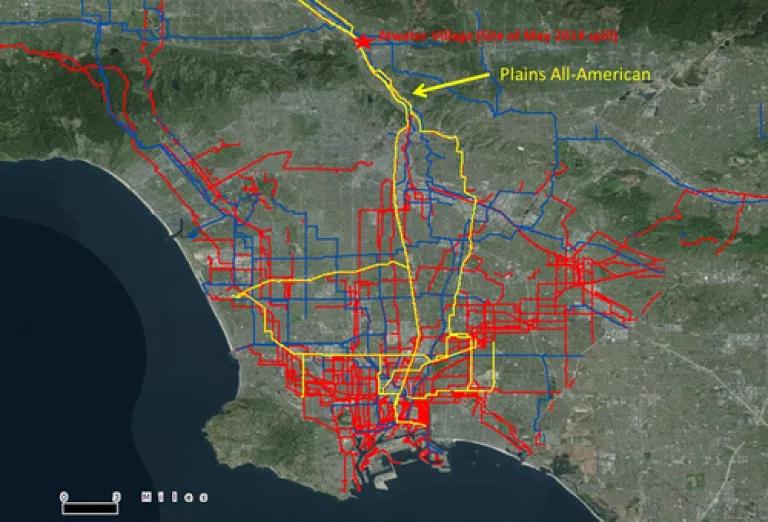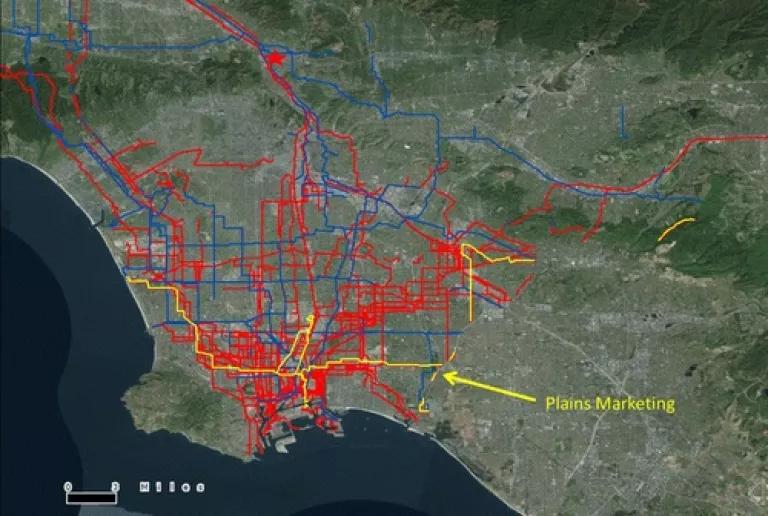
On Tuesday, an oil pipeline owned and operated by Houston-based Plains All American ruptured and spilled at least 105,000 gallons of crude oil into the ocean off of Santa Barbara. The oil slick created by the spill is now reported to be at least nine miles long.
This isn't the first time we've heard about a Plains All American oil spill in Southern California. Almost exactly a year ago, a Plains-operated pipeline burst in northeast Los Angeles, spewing more than 10,000 gallons of crude oil into the air and coating nearby cars and buildings with a fine oily sheen.
Photo credit: Associated Press
Even more concerning is this company's long history of violations of pipeline safety and monitoring requirements across the U.S. and Canada:
- Since 2006, Plains has racked up 175 safety and maintenance infractions, according to an analysis of federal records conducted by the Los Angeles Times.
- In a three-year period between 2004 and 2007, pipelines owned by Plains were implicated in 10 oil spills across four states: Texas, Louisiana, Oklahoma, and Kansas. More than 270,000 gallons of oil was spilled--some into rivers, creeks and wetlands. The U.S. EPA settled with Plains in 2010, slapping the company with a $3.25 million civil penalty and requiring the company to spend $41 million in repairs and upgrades.
- In 2011 and 2012, pipelines operated by Plains' Canadian subsidiary ruptured and spilled tens of thousands of gallons of oil, impacting boreal forest and a river in Alberta.
Here in Southern California, Plains All American and its affiliate Plains Marketing own and operate an extensive network of oil pipelines stretching from Santa Barbara through Los Angeles and down to the South Bay. The company's abysmal track record doesn't give me much confidence that these pipelines are being operated and maintained properly and safely.


Maps created using US DOT National Pipeline Mapping System Public Map Viewer
When last year's spill in Atwater Village happened, I said it should serve as a wake-up call for elected officials, but they must have hit the snooze button. Ultimately, we need to wean ourselves off of fossil fuels altogether and move toward a clean energy future, but until that happens we need stronger safeguards to ensure the safety of existing infrastructure.
For more thoughts on the Santa Barbara oil spill, see recent posts by my colleague Anthony Swift on how the spill highlights the threat of industry's plans to expand tar sands infrastructure along the West Coast, and Giulia Good Stefani on how authorities' slow response to this spill is setting off alarm bells concerning Shell's plans to drill in the Arctic.

